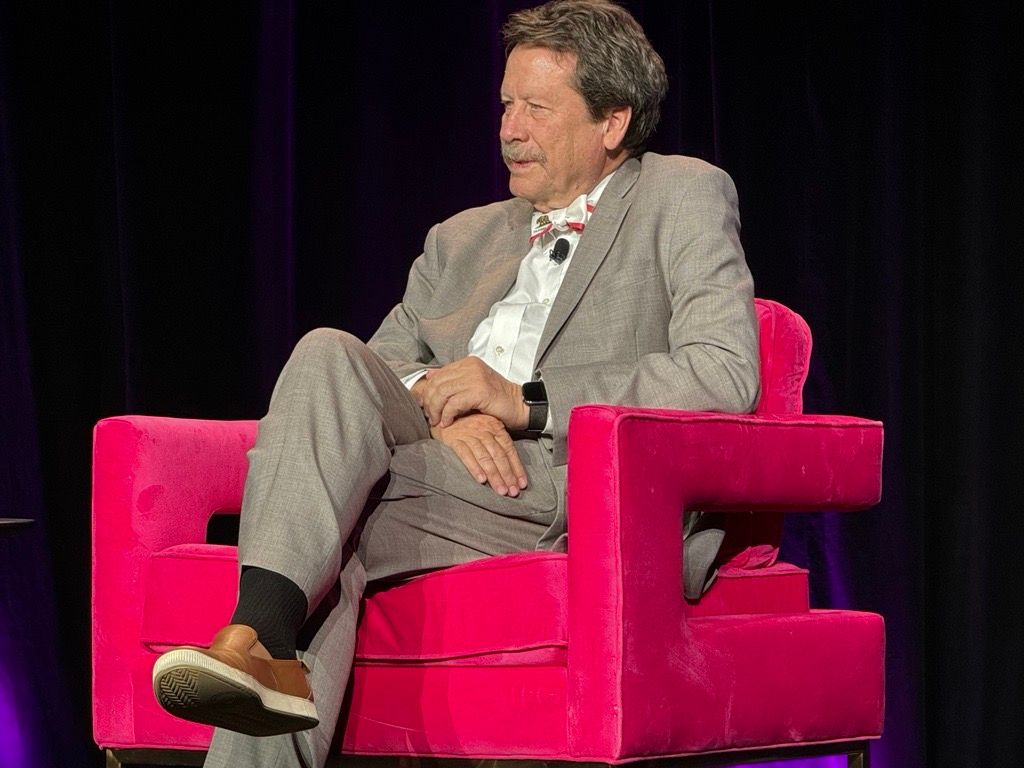FDA is ‘finished’ after mass layoffs, ex-commissioner says
Robert Califf, who led the Food & Drug Administration under former President Biden, said most leaders with knowledge of safety are gone.
The layoffs of more than 3,000 employees at the Food & Drug Administration began Tuesday morning, and the FDA’s former leader said that the agency would never be the same.
Former FDA Commissioner Robert Califf, shown here at the HLTH Conference in October, said that the agency won't be the same after mass layoffs and the departure of key leaders.

Former FDA Commissioner Robert Califf, who served under former President Biden, said Tuesday morning that the cuts of so many key people will be seen as a “huge mistake.” Califf, who stepped down after the election, said in a post on LinkedIn that he was “overwhelmed with messages about the firings.”
“The FDA as we've known it is finished, with most of the leaders with institutional knowledge and a deep understanding of product development and safety no longer employed,” Califf wrote.
Health & Human Services Secretary Robert F. Kennedy Jr. said last week that he was laying off 10,000 workers throughout the department. Those layoffs include 3,500 staff at the FDA, or about 19% of the agency’s employees. Factoring in early retirements and buyouts, the health department’s workforce is dropping from 82,000 to 62,000 workers.
In another post Tuesday, Califf also wrote, “I hope people will broadly catch on that the lives, health and well-being of our people is in jeopardy.”
Beyond the sheer number of dismissals, Califf’s comments reflect the departure of top leaders.
Dr. Peter Marks, the FDA’s vaccine chief, resigned last week after concluding that he couldn’t abide Kennedy’s “misinformation” regarding vaccine safety, the Associated Press reported.
The AP cited Marks’ resignation letter, where he wrote, “It has become clear that truth and transparency are not desired by the Secretary, but rather he wishes subservient confirmation of his misinformation and lies.”
After Marks resigned, Califf wrote last weekend, “His interest was always with the combination of public health and the special needs of patients in this rapidly evolving world of technology. What he describes in his resignation letter should be frightening to anyone committed to the importance of evidence to guide policies and patient decisions.”
The FDA layoffs alarmed public health leaders, including dismissals at an office that oversees tobacco products. Brian King, the FDA’s tobacco director, notified staff that he was being placed on administrative leave, and dozens of other staffers in the FDA’s tobacco division were dismissed, the Associated Press reported.
Lori Freeman, chief executive officer of the National Association of County and City Health Officials, denounced what she called the “gutting” of the FDA’s Center on Tobacco Products.
The center describes its mission as “setting performance standards, reviewing premarket applications for new and modified risk tobacco products, requiring new warning labels, and establishing and enforcing advertising and promotion restrictions.”
In an appearance at the HLTH Conference in October just two weeks before the election, Califf reflected on his time at the agency and its evolving role.
“The FDA is making hundreds of decisions every day that you never hear about because the system basically works. And keeping that running, to me, is the biggest accomplishment,” he said.
The FDA is facing greater challenges in regulating products, including AI and other digital technology, Califf said in October.
Those challenges may be exacerbated by reductions in staff.
“We're entering an era where we're gonna have to rethink everything we do because of the technology changes that we're seeing which affect every single industry that we're dealing with,” Califf said.
In his appearance at HLTH, Califf said the FDA’s work becomes especially difficult in reviewing AI tools that are billed as providing “decision support” for healthcare organizations.
And in an assessment that’s especially interesting in light of the staff reductions, Califf said for the FDA to monitor everything in AI, the agency would likely have to be two to three times larger than it was in October.
Instead, the agency is getting smaller.
The Senate last week voted to confirm Marty Makary, MD, to serve as the FDA commissioner. Makary is a surgeon and professor at Johns Hopkins University.
Makary took office Tuesday, just as the health department began its layoffs.
“I look forward to working with this Administration and the FDA workforce to advance our shared goals in meeting the agency’s public health mission,” Makary said in a statement Tuesday.
Healthcare leaders: Prepare for a very different HIPAA security rule | Viewpoint
April 20th 2025The proposed changes to the HIPAA Security Rule are significant. Executives and boards need to prepare as the days of voluntary compliance end and a new era where leaders are held personally accountable emerges.